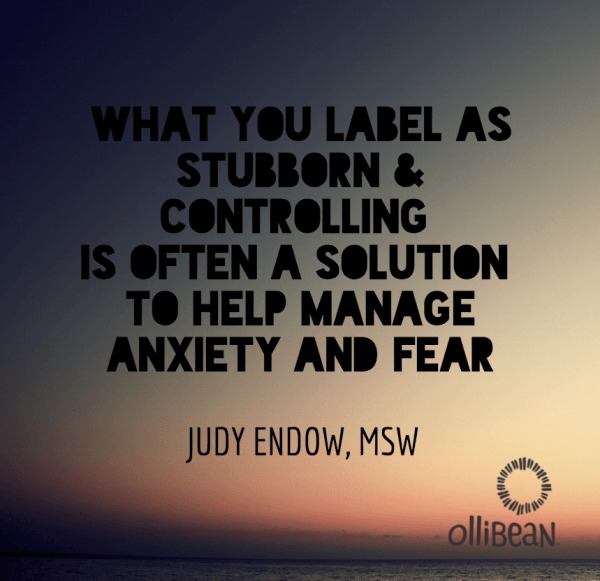
I am an autistic woman. Most of my life people have let me know they think I am stubborn and controlling. Over time I have learned to hide the behaviors so people do not think I am stubborn and controlling. I understand you view my stubbornness as a bad thing so I have learned to hide it.
Today I would like you to consider that what you label as stubborn and controlling is often a solution to help us manage our anxiety and fear.
Whenever we have a fearful or anxious moment – and those moments tend to happen quite often -– we try to manage it. Everyone does this. One of the ways we all try to manage anxiety and fear is to take some control of the situation. This works for most people because they share a social understanding of just how to take control in a way that doesn’t tick people off.
Here is an example:
Imagine being in a situation where three friends have decided to go to a movie together. Jane offers to pick up Mary and Cathy. Both Mary and Cathy do not want to ride with Jane because Jane has been in several accidents due to inattentive driving.
Mary thinks about how she does not feel comfortable riding with Jane. Just thinking about it makes her feel anxious. She thanks Jane for her offer to drive and then tells Jane since she will be doing some errands near the movie theater she will meet her at the theater. Mary made up the part about needing to do errands. It wasn’t true at all, but Mary had the social understanding that it was perfectly fine to tell this sort of untruth so as to spare Jane’s feelings. Mary managed her anxiety and fear around Jane’s driving.
Cathy thinks about how she does not feel comfortable riding with Jane. Just thinking about it makes her feel anxious. She calls Jane and relays all of the points she can remember from the driving manual she used to study when preparing to take the driving test. Cathy insisted that Jane follow the information in this driving manual. She told Jane that if all drivers would follow the manual there would be fewer accidents. Cathy further tells Jane that she will not be a passenger in Jane’s car unless Jane agrees to follow all the safe driving rules as outlined in the manual. Cathy managed her anxiety and fear around Jane’s driving.
Mary and Cathy both felt anxious about Jane’s driving and needed to take control to relieve their anxiety. Each of them did so in their own way. Mary’s way worked and Cathy’s way did not.
For the autistic, the social understanding of how to be controlling without ticking others off doesn’t come naturally. Thus, our attempt to master anxiety and fear by using the universal strategy of taking some control tends to backfire for us. In fact, autistics are blamed for being too controlling as if it is a bad thing!
In the above example, Mary was just as controlling as Cathy. However, Mary’s behavior would never be labeled as stubborn and controlling, while Cathy’s behavior would quickly be labeled that way.
In our society we have decided that being stubborn and controlling is a bad thing. Most neurotypical people have learned to be stubborn and controlling in a socially acceptable manner. They are able to get away with it because their neurology supports an automatic social understanding, allowing them to act in a way that does not get labeled as stubborn and controlling even though they are being stubborn and controlling. Autistic people most often do not have this luxury of automatic social understanding. Hence, they manage their anxiety and fear with different behavior. Even so, just like the neurotypical person, they are managing anxiety and fear.
I am not condoning one set of behaviors over another – merely explaining that all people stubbornly use controlling behavior to manage fear and anxiety. The difference is that nonautistic people know how to do this in socially acceptable ways.
Next time you label an autistic as being stubborn or always needing to control things I am hoping that you might shift your thinking. Rather than blaming the autistic for bad behavior might you see the autistic is employing a solution to alleviate fear and/or anxiety? Might you join with the autistic in helping expand the repertoire of how to manage fear or anxiety?
The truth is, at the end of the day, nobody benefits from the blame game. The person being blamed for bad behavior feels awful. The person doing the blaming winds up getting stuck and unable to help solve a problem. Nobody wins in the blame game and yet we feel comfortable in playing that game because we can throw up our hands and declare it is the other person’s fault – nothing we can do about that!
 JUDY ENDOW, MSW
JUDY ENDOW, MSW
Judy Endow, MSW is an autistic author, artist and international speaker on a variety of autism related topics. Read more from Judy on Ollibean here and on her website www.judyendow.com.

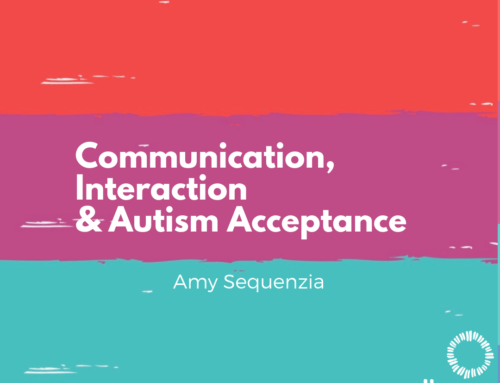
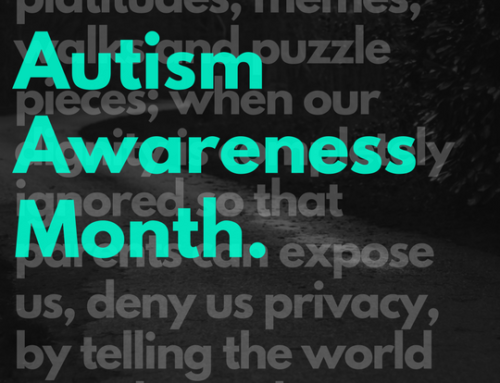
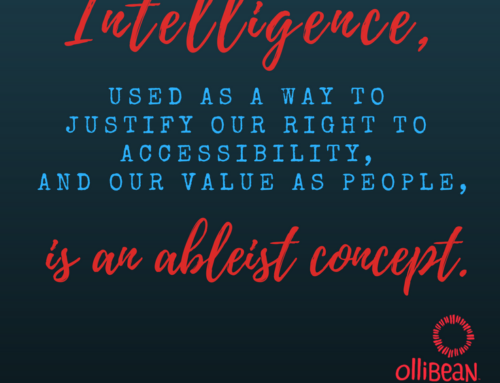
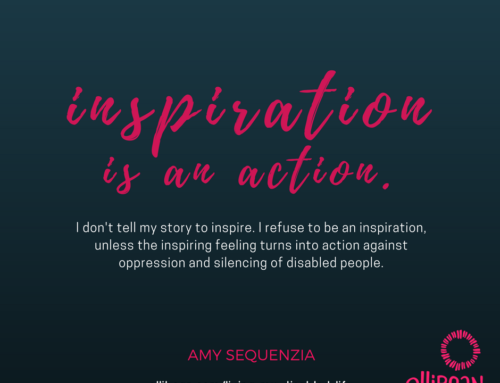
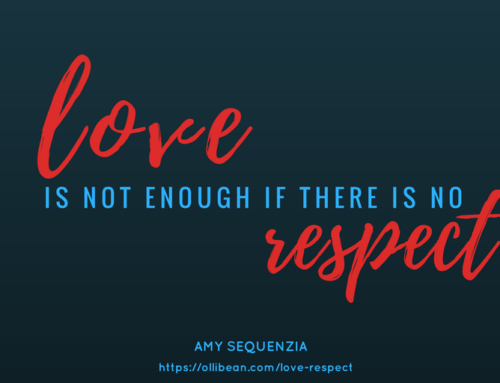
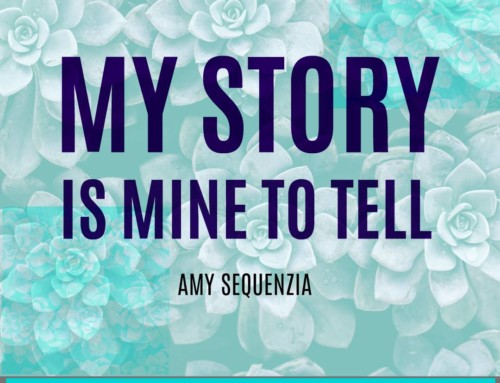
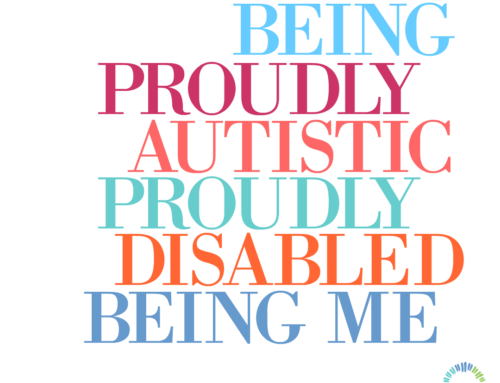
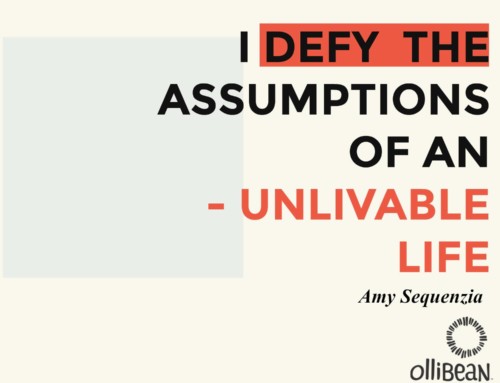
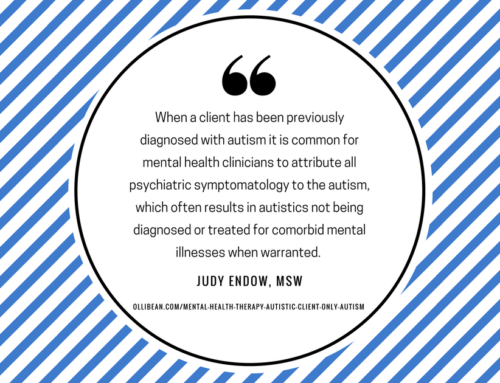
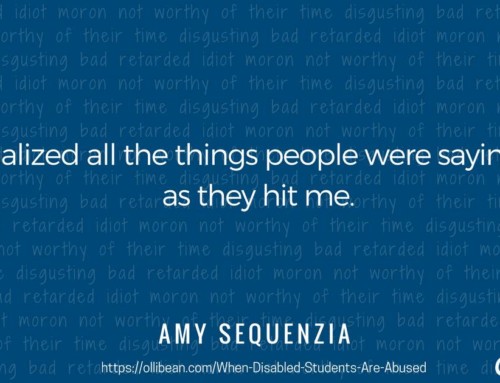

thank you, this is very helpful for us!
Haha. Poor Cathy. That’d be me, except I would not have been able to verbalize. I had an understanding that I should give an explanation but only because people just would refuse to accept my saying “no, thank you.” Which, of course would just add to my anxiety and leave me frustrated. So I just tried to avoid social situations. Then I got labeled stuck up. Can’t win.
Yes, you can win. You can read books on assertiveness and boundaries, get a therapist and actually work on these skills. It’s not your responsibility if other people “refuse to accept” your saying “no thank you.” Are you a slave? Does someone own you? If not, of course they will accept your “no, thank you” unless they are attempting to physically force you, in which case you need to call law enforcement. If they insist, you end the conversation, or leave the room, or play “broken record” and keep repeating your “no, thanks” until they get it. Take some agency. Do you even want people in your life who pressure you like that? No. If everyone you’ve ever met makes you feel like that, then it’s clearly something you need to work on. NTs and NDs alike frequently need to be taught how to enforce boundaries, how to be assertive, etc. There’s entire organizations (like CODA) dedicated to teaching these skills to all types of folks.
beautifully written and so ticking the box for so many on the spectrum.
Sometimes, it can be more difficult to actually handle the anxiety (i.e. call and tell you you’ll meet her at the theater) than it is to just face the anxiety head on. Having to choose the lesser of two evils makes things even worse. However, when you have two (or more) causes of anxiety working simultaneously, this is what leads to mental stress, and eventual breakdown